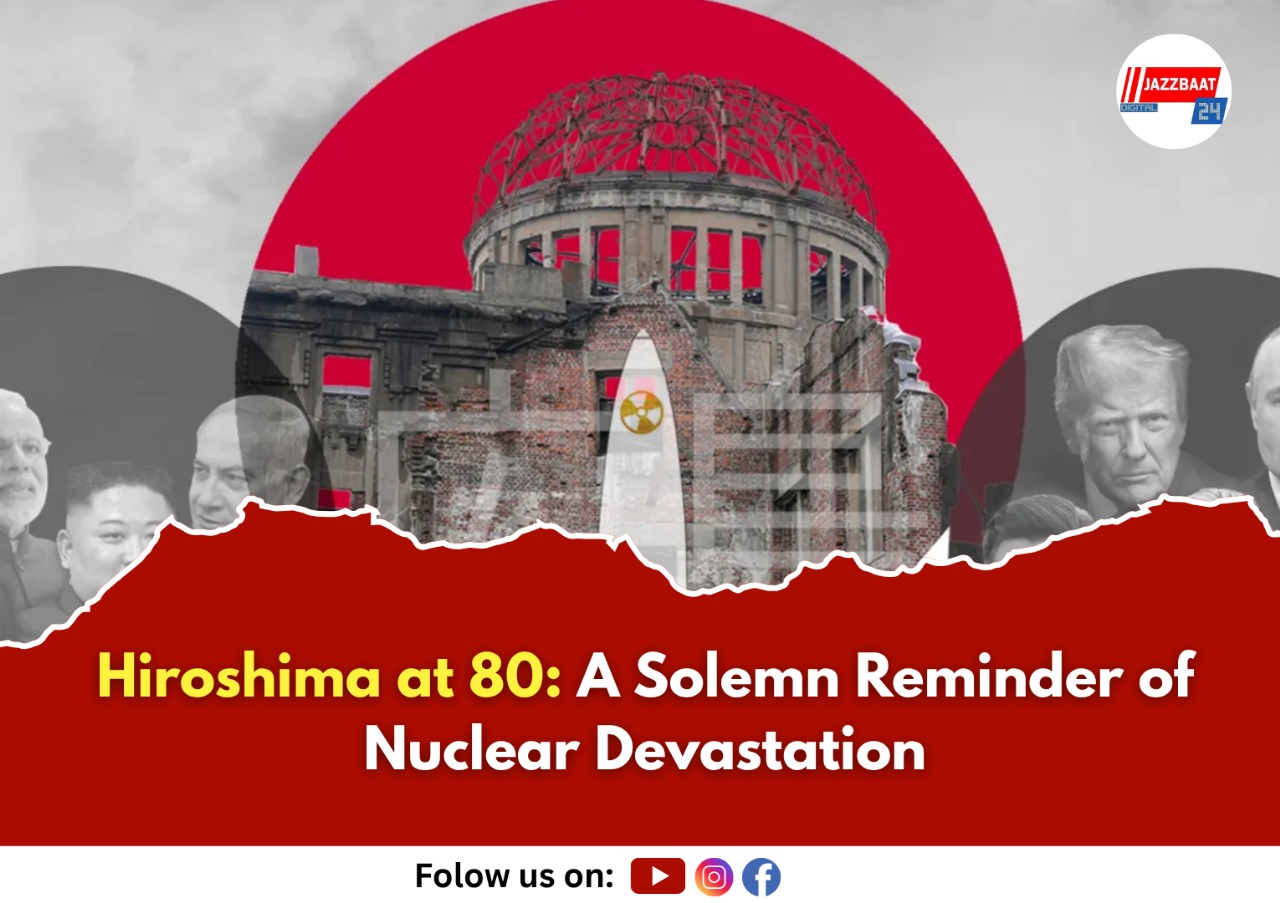
In the early morning light of August 6, 1945, the world changed forever. At precisely 8:15 a.m., the uranium bomb nicknamed "Little Boy" detonated 600 meters above Hiroshima, unleashing destruction beyond comprehension. Today, 80 years later, Japan mourned this catastrophic moment with ceremonies attended by representatives from 120 countries, including nuclear superpowers and world leaders.
The numbers remain staggering. The bomb instantly killed approximately 78,000 people, with temperatures reaching 4,000 degrees Celsius at ground zero. By year's end, radiation sickness and severe burns had claimed another 70,000 lives. Three days later, Nagasaki faced a similar fate, leading to Japan's surrender and the end of World War II.
At Wednesday's memorial ceremony in Hiroshima's Peace Memorial Park, Mayor Kazumi Matsui delivered a sobering warning to world leaders. He pointed to the "accelerating trend toward military build-up" and criticized the growing belief among political leaders that nuclear weapons are essential for national defense. His words carried particular weight as he noted that the United States and Russia currently possess 90% of the world's nuclear warheads.
The ceremony's most poignant moments came from the hibakusha, atomic bomb survivors whose numbers have dwindled below 100,000 for the first time. Shingo Naito, who was six when the bomb killed his father and two younger siblings, shared his traumatic memories with students creating art from survivor testimonies. His father's burns were so severe "he couldn't even hold my hand."
Another survivor, Satoshi Tanaka, drew painful parallels between his experience and current global conflicts. Watching the destruction in Gaza and Ukraine, he said, brings back memories of panic-stricken civilians fleeing through rubble-filled streets, scenes that mirror his own childhood trauma in Hiroshima.
The legacy of nuclear weapons continues to cast a shadow over international relations. Despite Japan being the only nation to suffer atomic attacks, it has not ratified the Treaty on the Prohibition of Nuclear Weapons, arguing that U.S. nuclear deterrence enhances its security—a position that highlights the complex geopolitical realities surrounding disarmament.
Japanese Prime Minister Shigeru Ishiba's attendance at the ceremony underscored the government's commitment to remembering this tragedy while navigating modern security challenges. The presence of representatives from nuclear-armed nations, including the United States and Israel, demonstrated the ceremony's continued global significance.
The 2024 Nobel Peace Prize awarded to Nihon Hidankyo, a Japanese organization of atomic bomb survivors, recognized their decades-long campaign for nuclear disarmament. Their work takes on renewed urgency as survivors age and firsthand testimonies become increasingly rare.
Mayor Matsui's plea to world leaders was direct: "Please visit Hiroshima and witness for yourselves the reality of the atomic bombing." His words echoed the sentiment of many attendees who view the memorial not just as remembrance, but as a crucial warning about humanity's capacity for destruction.
As the world marks this 80th anniversary, the message from Hiroshima remains clear. With over 12,000 nuclear weapons still in existence and rising global tensions, the lessons of August 6, 1945, are as relevant today as they were eight decades ago. The silent prayer observed at 8:15 a.m. serves not only to honor the dead, but to remind the living that such devastation must never happen again.
The doves released over Peace Memorial Park symbolize hope, hope that humanity will choose dialogue over destruction, peace over proliferation, and remember that behind every statistic lies a human story of unimaginable loss.